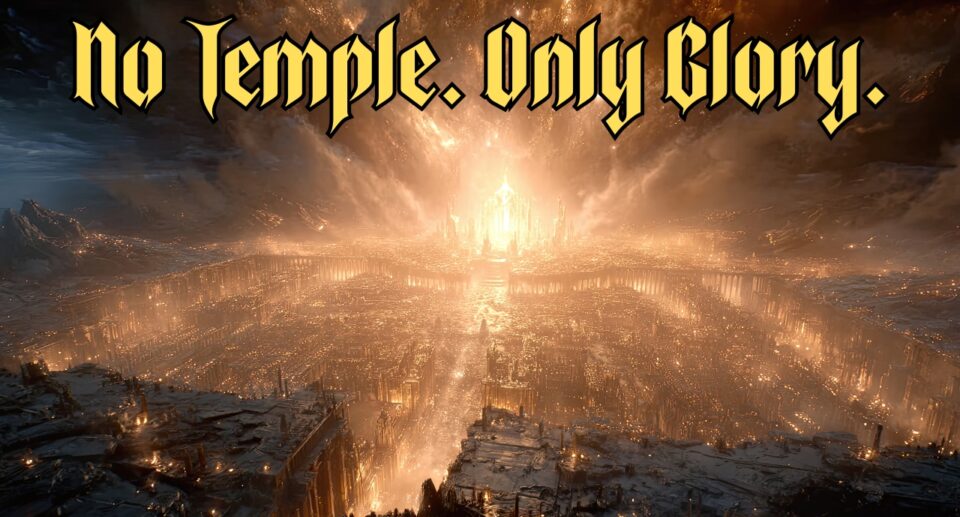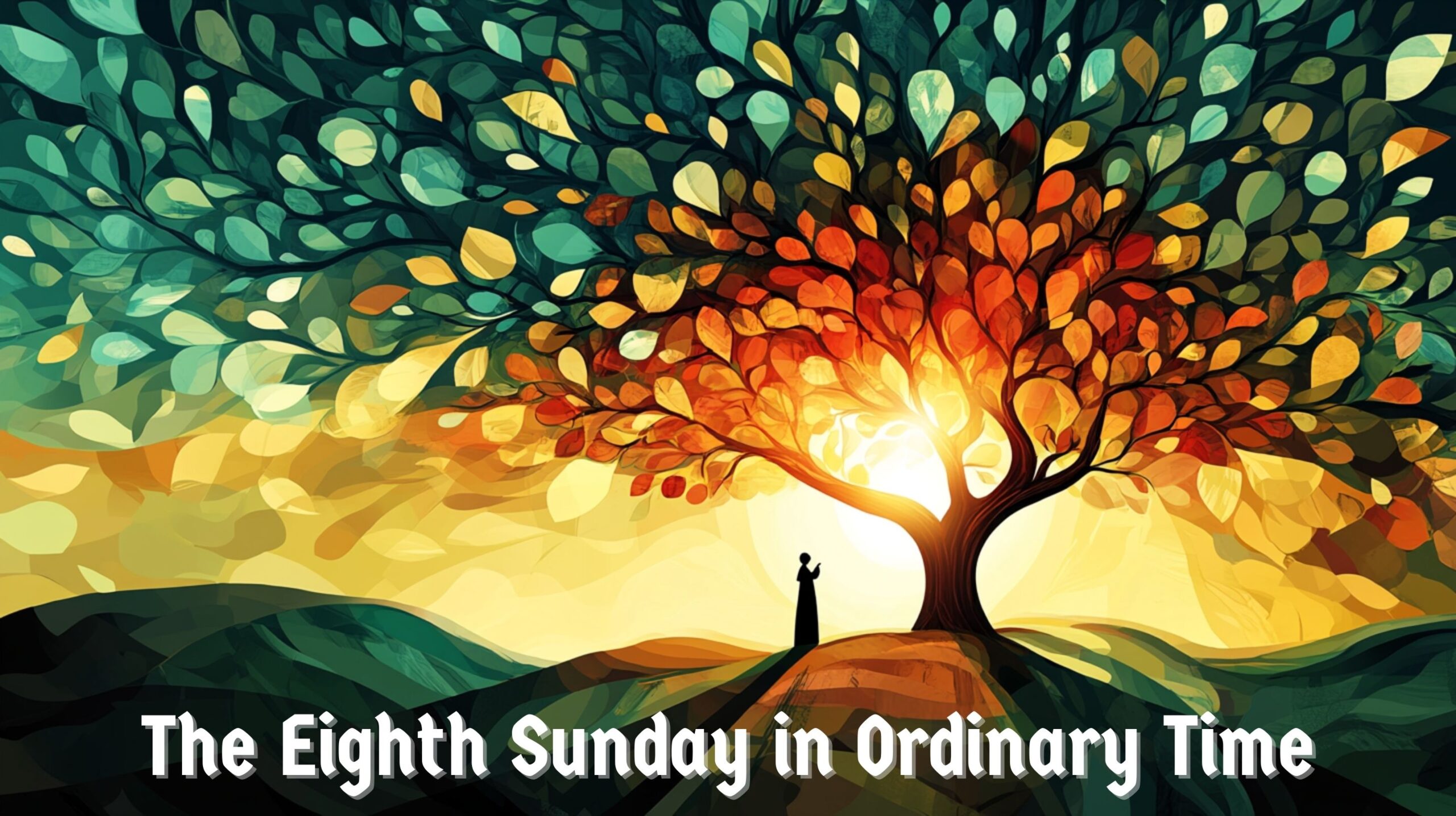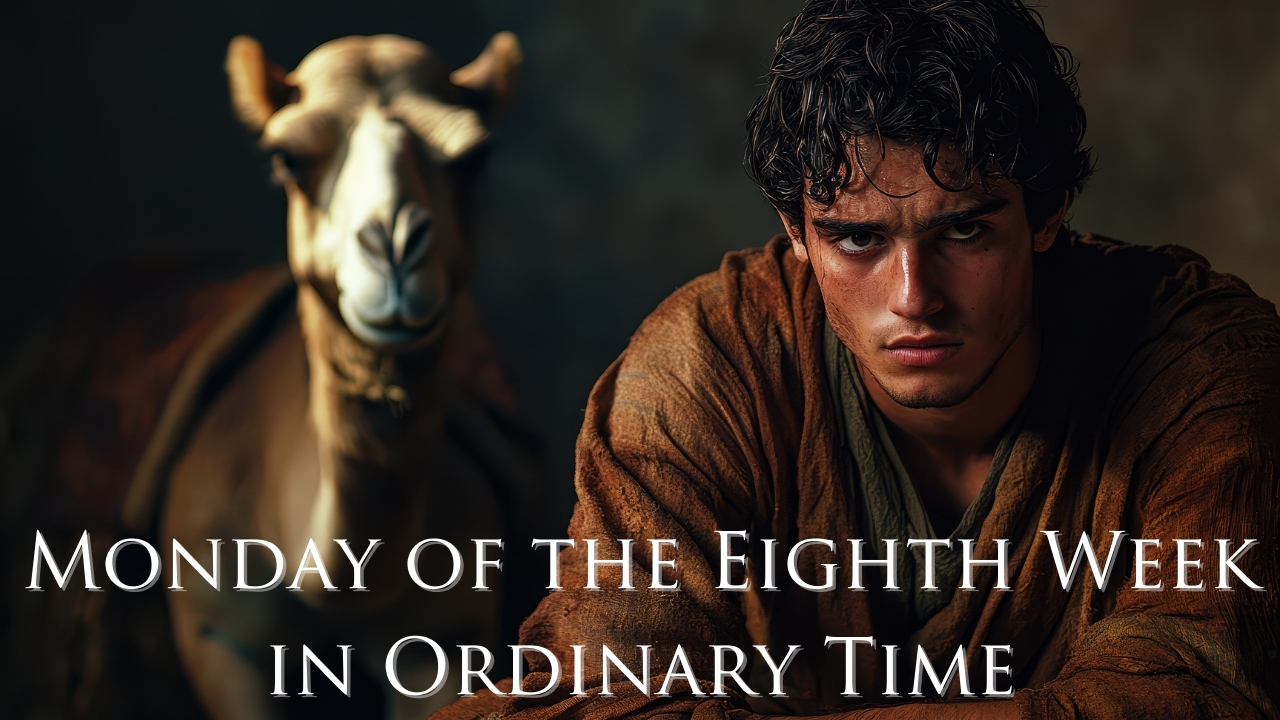The New Jerusalem: When Sacrament Meets Glory | Daily Readings | May 25, 2025

May 25, 2025 – Daily Catholic Lectionary Readings for Sixth Sunday of Easter.
John’s vision of New Jerusalem reveals the fulfillment of our sacramental life: divine presence so complete that worship becomes perfect reality rather than earthly anticipation. Every Mass prepares us for this eternal liturgy where Christ’s light eliminates external illumination. The Jerusalem Council shows how apostolic authority continues to guide the universal Church, while Jesus promises divine indwelling that begins sacramentally and reaches completion in eternal union.
This cinematic reflection explores:
- How New Jerusalem fulfills rather than replaces liturgical worship
- Why sacramental grace prepares us for intimate divine union
- How apostolic succession connects earthly Church to heavenly reality
- What Catholic devotional life reveals about eternal divine presence
Readings: Acts 15:1-2, 22-29; Psalm 67:2-3, 5, 6, 8; Revelation 21:10-14, 22-23; John 14:23-29
Perfect for Catholics seeking deeper understanding of how sacramental life connects to eternal reality, and anyone exploring the relationship between earthly worship and heavenly glory.
#NewJerusalem #SacramentalLife #LiturgicalWorship #SixthSundayEaster #CatholicFaith
The New Jerusalem: When Sacrament Meets Glory
“I did not see a temple in the city, because the Lord God Almighty and the Lamb are its temple.”
John’s vision of the New Jerusalem reveals something breathtaking: the fulfillment of everything our sacramental life points toward. No separate temple building because divine presence has become so complete, so intimate, that the entire city radiates God’s glory. This isn’t the elimination of sacred worship, it’s worship perfected.
Every Mass we celebrate anticipates this moment. Every Eucharist we receive prepares us for this reality where Christ’s presence becomes our very atmosphere.
Jesus promised this intimate union: “Anyone who loves me will obey my teaching. My Father will love them, and we will come to them and make our home with them.” This divine indwelling, which begins in baptism and deepens through each sacrament, reaches its fulfillment in the New Jerusalem where separation between divine and human becomes impossible.
Our liturgical life isn’t preparation for something else, it’s participation in eternal reality breaking into time.
“The city does not need the sun or the moon to shine on it, for the glory of God gives it light, and the Lamb is its lamp.” What John sees is the perfection of what we experience partially in the Eucharist: Christ as our light, our nourishment, our very life. The tabernacle lamp that burns continuously in our churches is a foretaste of this eternal illumination.
When we genuflect before the Blessed Sacrament, we acknowledge the same divine presence that will one day make external light sources unnecessary.
The Jerusalem Council discovered how the Holy Spirit guides the Church’s teaching authority. “It seemed good to the Holy Spirit and to us not to burden you with anything beyond the essential requirements.” This wasn’t just apostolic opinion, it was the Spirit working through the Church’s magisterium to reveal God’s will for the universal Church.
This same Spirit continues to guide the Church’s discernment today, ensuring that our faith remains authentic while embracing all nations as the psalmist envisioned: “May all the peoples praise you.”
John’s vision includes the twelve apostolic foundations because the Church built on apostolic succession becomes the means by which New Jerusalem reality enters our world. The apostles weren’t just historical figures, they represent the continuing structure through which divine life flows into human community.
Every bishop in apostolic succession, every priest celebrating Mass, every deacon proclaiming the Gospel participates in this foundation that bridges heaven and earth.
Jesus explains how this divine indwelling operates: “The Advocate, the Holy Spirit, whom the Father will send in my name, will teach you all things and will remind you of everything I have said to you.” This teaching doesn’t replace Scripture and Tradition, it illuminates them, helping us understand how divine revelation applies to every aspect of life.
The Spirit’s teaching flows through the Church’s liturgical seasons, scriptural proclamation, and doctrinal development, gradually unveiling the full meaning of Christ’s presence among us.
“Peace I leave with you; my peace I give you. I do not give to you as the world gives.” This peace isn’t mere absence of conflict, it’s the deep rest that comes from sacramental union with God. When we receive absolution in confession, peace with God becomes tangible. When we receive Communion, Christ’s peace enters our very being.
This sacramental peace anticipates the New Jerusalem where divine presence eliminates every source of inner turmoil.
“Do not let your hearts be troubled and do not be afraid.” Jesus speaks these words not to eliminate difficulty but to remind us that sacramental grace provides resources for every challenge. The saints discovered this throughout Church history, finding supernatural peace through the Mass, the rosary, Eucharistic adoration, and devotional prayer even in the midst of persecution and suffering.
Our liturgical and devotional practices aren’t external performances, they’re means of grace that cultivate the divine indwelling promised in John’s vision.
The New Jerusalem represents the fulfillment of Catholic sacramental theology: what we receive partially in the Eucharist, we will experience completely in eternal life. What we glimpse during liturgical celebration, we will live permanently in divine presence.
But this future reality transforms present experience. Every Mass becomes a window into eternity. Every prayer becomes participation in heavenly worship. Every act of devotion becomes preparation for the divine indwelling that will characterize New Jerusalem life.
When John sees living stones forming the city’s foundation, he reveals how the communion of saints – past, present, and future – creates the architecture of divine presence on earth. Our participation in the Church’s sacramental life connects us to this eternal community.
The question isn’t whether the New Jerusalem will come, Church teaching assures us it will. The question is whether we’re allowing sacramental grace to prepare us for this intimate union with divine presence.
Every genuflection anticipates perfect adoration. Every Communion prefigures eternal union. Every absolution prepares us for sinless perfection. Every confirmation strengthens us for complete transformation.
The New Jerusalem isn’t escape from earthly life, it’s earthly life perfected through divine presence. And that perfection begins now, sacramentally, in the Church Christ established to be our bridge between time and eternity.






